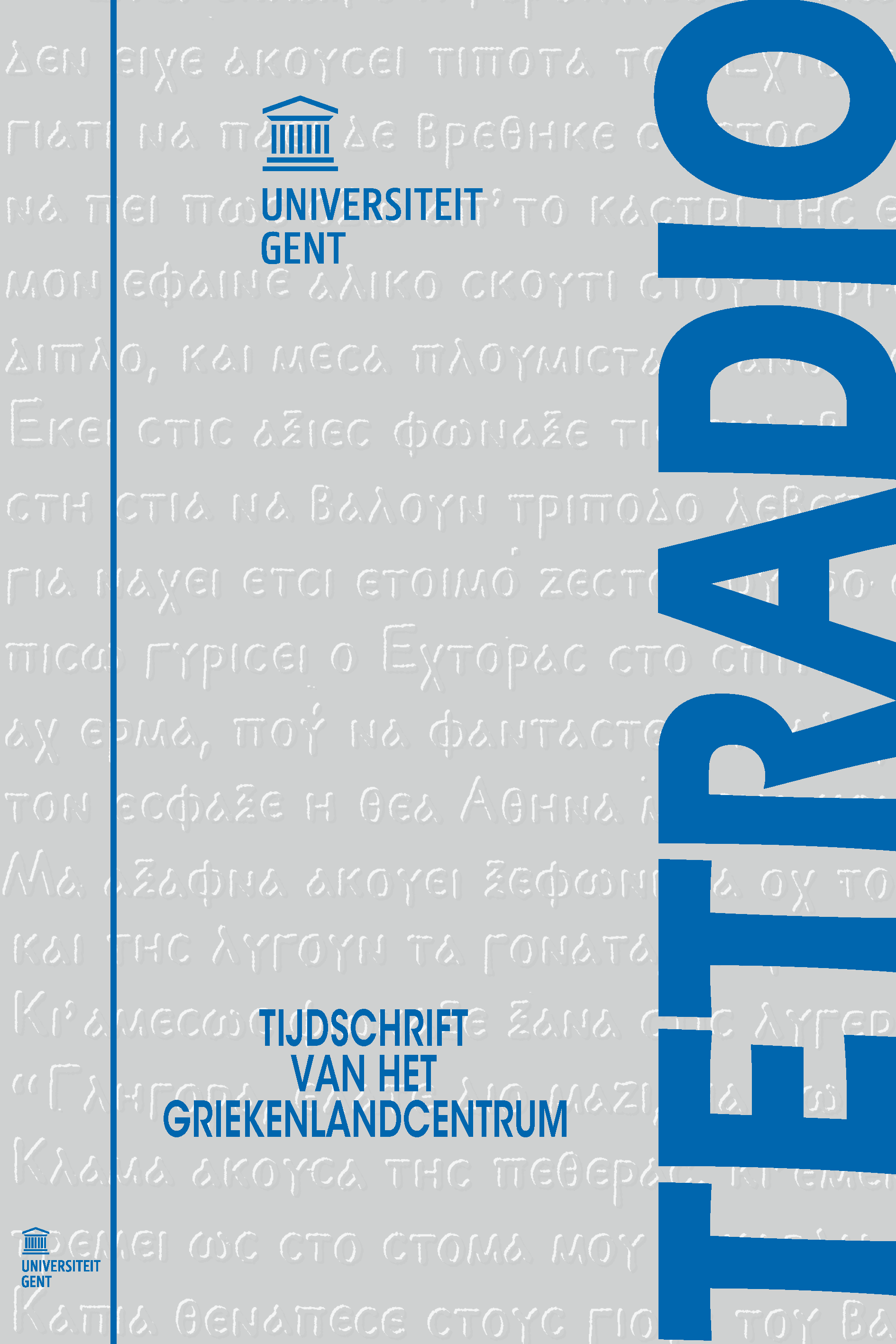Nietzsche en ‘zijn’ Grieken. Figuranten in een filologisch fantasma of dragers van interculturele negotiatie?
Abstract
It is generally known that classical antiquity has played a major role in the construction of important aspects of Friedrich Nietzsche’s philosophy. Historically speaking, this is hardly a surprise: he was not only a trained classical philologist himself and for about ten years professor of this discipline at the university of Basel (Switzerland), but he was also a distinguished descendant of a German humanistic tradition, which goes back to Winckelmann and covers most of the intellectual tendencies of the 19th century that have influenced his thinking and writing. In spite of all this, Nietzsche developed over the years an increasingly personal concept of Greek culture. In this article, the author traces the development of Nietzsche’s confrontations with 'Greeks’ during the 1870s and 1880s and tries to establish by means of a close reading of a number of Nietzschean texts the philosopher’s concept of intercultural negotiation.
How to Cite:
Biebuyck, B., (2001) “Nietzsche en ‘zijn’ Grieken. Figuranten in een filologisch fantasma of dragers van interculturele negotiatie?”, Tetradio 10(1): 1, 9–40. doi: https://doi.org/10.21825/tetradio.91954
Downloads:
Download PDF
View PDF

